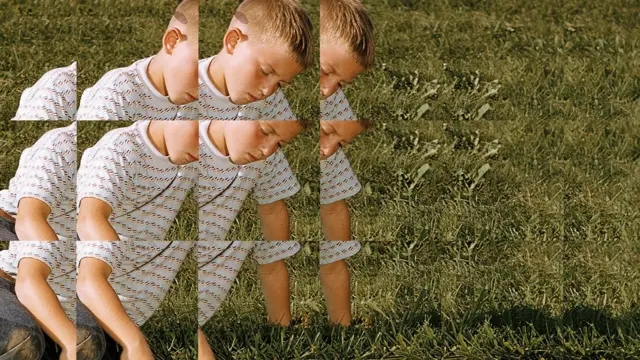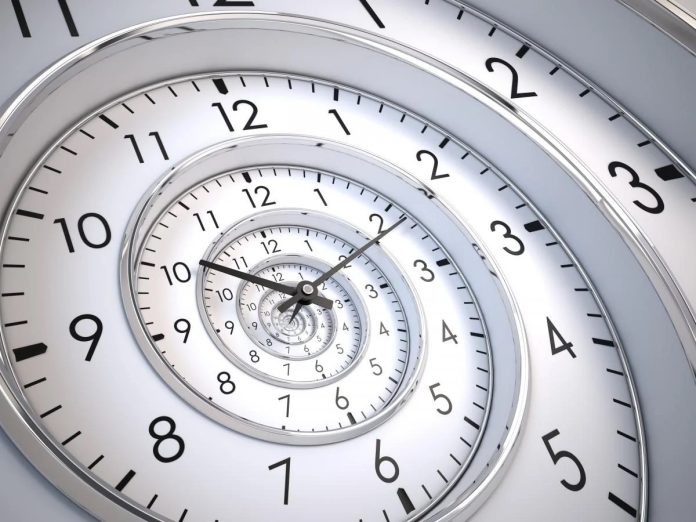Багато батьків помічають, що час для їхніх дітей тече значно повільніше, ніж для них самих. Діти можуть бути нетерплячими в очікуванні свят або звичайної подорожі, і здається, що вони переживають моменти з інтенсивнішими емоціями, ніж дорослі. Це явище пов’язане не лише з відмінностями в сприйнятті часу, але й з тим, як мозок обробляє інформацію на різних етапах розвитку.
Моя родина захоплено сперечається про те, коли час минає найшвидше та найповільніше.
“Найповільніше в машині!” – кричить син.
“Та ні! – відповідає донька. – Я надто зайнята, щоб відчувати, що час йде повільно, але, можливо, на вихідних, коли ми сидимо на дивані й дивимося фільми”.
У дечому вони згодні. Дні після Різдва та їхніх днів народження тягнуться надто довго, коли усвідомлюєш, що до наступного свята чекати 365 днів. Рік в їхньому віці – це величезний період часу.
Я добре памʼятаю ці відчуття: літні канікули з іграми на пляжі, стрибками на свіжоскошеному газоні, білизні, що сушиться на мотузці, поки палає сонце. У такі моменти дійсно здавалося, що час рухається повільно.
Професорка психології з Королівського університету Белфаста Тереза Маккормак досліджує, чи є щось на кшталт внутрішнього годинника, який у дітей і дорослих працює з різною швидкістю.
“Ми досі не знаємо відповідей на запитання, наприклад, коли діти починають відрізняти минуле від майбутнього, а це те, що структурує весь наш спосіб мислення, – каже науковиця.
Вона пояснює, що з досить раннього віку діти починають відрізняти рутинні події, як-от час їжі та час сну. Але це не те саме доросле відчуття лінійності часу.
На відміну від дітей, дорослі можуть думати про моменти часу незалежно від того, коли відбувається подія, завдяки тому, що користуються годинником та календарем.
Слова теж мають значення. “Дітям потрібен час, щоб навчитися користуватися поняттями “до”, “після”, “завтра” та “вчора”, – каже Маккормак.
Наше розуміння часу також ґрунтується на тому, коли вас просять оцінити швидкість часу.
Один з найяскравіших прикладів, який наводить дослідниця, про дорослішання ваших дітей.
“Час від народження моєї дитини до моменту, коли вона виросла і пішла з дому, здається однією миттю. Але ви пригадайте, скільки триває день, коли доглядаєш маленьку дитину”.

Автор фото,Edouard Taufenbach, Bastien Pourtout
Дослідження показали, що здатність оцінювати тривалість часу та його швидкість розвиваються у людей окремо.
Діти віком до шести років, здається, здатні зрозуміти, як швидко минає урок у класі, але їхні судження пов’язані більше з їхнім емоційним станом, ніж з фактичною тривалістю. Ці два елементи об’єднуються на пізнішому етапі, коли діти розуміють зв’язок між швидкістю та тривалістю.
Є ще питання пам’яті.
Багато досліджень зосереджено на тому, як наше сприйняття часу залежить від того, як наш мозок зберігає спогади. Ця тема давно захоплює Золтана Надасді, доцента психології з Університету Етвеша Лоранда в Будапешті.
Коли Надасді ще вчився в університеті, він переконав своїх однокурсників провести польове дослідження сприйняття часу серед дітей і дорослих.
Експеримент був простий. Надасді і його однокурсники показали групам дітей і дорослих два відеоролики, обидва тривалістю по хвилині, і запитали, яке відео здається довшим, а яке коротшим.
Через три десятиліття Надасді та його команда вирішили повторити експеримент.
Динамічний гостросюжетний кліп про поліцейських і грабіжників та доволі одноманітне відео, на якому люди пливуть на човні озером, показали трьом віковим групам і попросили оцінити тривалість роликів за допомогою жестів.
Результат був той самий. “Чотири-п’ятирічні діти вважали насичене діями відео довшим, а нудне – коротшим. Для більшості дорослих все було навпаки”.
Учасників попросили оцінювати відео за допомогою жестів, щоб зрозуміти, чи сприймають вони час як горизонтальний потік, що було очевидно в усіх трьох вікових групах.
За словами Надасді, експеримент показує, що за відсутності сенсорного органу для передбачення часу люди використовують інші механізми.
“У нас немає безпосереднього сенсорного органу, який би відповідав за сприйняття часу, а тому нам потрібно щось, із чи ми могли б порівняти плин часу”, – каже дослідник.
Отже, з чим час порівнюють діти?
Коли вони йдуть до школи, їхня шкала сприйняття очевидно змінюється, адже в школі вони починають вивчати поняття одночасності та абсолютного часу.
“Це не дає нам відчуття часу, а просто замінює цю шкалу. Коли ви йдете до школи, ви дотримуєтеся розкладу. Ваш день повністю контролюється”.
Маккормак звертає увагу на два додаткові моменти, коли йдеться про дитяче уявлення про час.
“Один полягає в тому, що їхні процеси контролю не такі, як у дорослих, – каже дослідниця. – Вони більш нетерплячі, їм важче чекати.
Це також пов’язано з концентрацією уваги. Що більше уваги ви приділяєте певному періоду часу, то повільніше він для вас минає”.
Інше дослідження Сільві Друа-Воле з Франції та Джона Вердена з Британії показало, що так само це працює й у дорослих.
Вони виявили, що відчуття часу в повсякденному житті змінюється не з віком, а з емоціями людини. Простіше кажучи – якщо ви щасливіші, час минає швидше. Якщо вам сумно, час тягнеться.
Дослідники насамперед звернули увагу на це під час локдауну. Уповільнення часу повʼязали з більшим стресом, меншою кількістю справ і старшим віком.
Схожий ефект можна помітити під час перегляду фільму. Страшні чи огидні фільми, здається подовжують час. Неприємні враження, як-от поїздка в переповненому потязі в годину пік, також здаються більш тривалими, ніж тиха подорож.
За словами професора з Північної Кароліни Адріана Беджана, погіршення нашого фізичного стану з віком також впливає на сприйняття часу.
Він намагався пояснити загадку нашого сприйняття часу через теорії про “фізику життя”, яку він розробив у 1996 році.
“Найбільше джерело інформації для нашого мозку – це зір, від сітківки ока до мозку”, – каже Беджан.
“Через зоровий нерв мозок отримує знімки, як кадри з фільму. Мозок розвивається в дитинстві та звик отримувати багато цих скриншотів. У дорослому віці тіло більше за розмірами, відстань між сітківкою ока та мозком подвоюється в розмірі, а шляхи передачі стали складнішими”, – каже дослідник.
Крім того, з віком в тілі починається деградація.
Це, за його словами, означає, що швидкість, з якою ми отримуємо “ментальні картинки” від наших органів чуття, зменшується з віком.
Це створює відчуття стиснутого часу в нашій свідомості, оскільки ми отримуємо менше уявних образів за одну одиницю часу у порівнянні з дитиною.

Автор фото,Edouard Taufenbach, Bastien Pourtout
Дослідження нейродегенеративних змін, пов’язаних з віком, показують, що може існувати зв’язок між ослабленням зорового нерва та уповільненням швидкості обробки інформації й об’ємом робочої пам’яті.
Те, на що ви дивитеся, також може мати значення. На сприйняття часу можуть впливати властивості сцени, її розмір, як легко її можна запам’ятати та як сильно вона завалена обʼєктами.
Нещодавно психологи з Університету Джорджа Мейсона в Ферфаксі, штат Вірджинія, виявили, що перші два чинники збільшують час, тоді як безлад і завантаженість сцени скорочують його.
Наші серця також передають важливий сигнал нашому мозку про плин часу – наше відчуття того, скільки триває подія, змінюється відповідно до ритму нашого серцебиття.
Якщо це дійсно відіграє важливу роль у нашому відчутті часу, то, мабуть, не випадково, що частота наших серцевих скорочень має тенденцію зменшуватися з віком. Частота серцевих скорочень досягає піку через кілька місяців після народження, а потім повільно знижується з віком.
Коли ми старіємо відбуваються й інші речі. Наш розпорядок дня стає менш різноманітним і більш негнучкий. Дослідження виявили, що час плине швидше, якщо людина живе під тиском рутини, а також більше орієнтована на майбутнє, ніж на життя у цей момент.
Те, що ви робите зараз, має першочергове значення для нашого розуміння часу, незалежно від віку. Наприклад, коли мозок навантажений більше, ми схильні відчувати скорочення часу – ми недооцінюємо тривалість завдання, що більш вимогливим воно є.
Відвідайте веселий двотижневий літній табір – він може запам’ятатися вам краще, ніж увесь навчальний рік.
Надасді пояснює, що спогади про літній табір скоріше з все займуть набагато більше місця у мозковій тканині через величезну кількість пригод за короткий час.
“Цілком можливо, що судження людей про тривалість часу частково відбивають їхні спогади про нові речі, які з ними сталися”, – каже Маккормак.
“Якщо ви доросла людина, ймовірно за останні 10 років у вашому житті не відбулося дуже багато великих змін”. Але якщо вони трапилися, вони запам’ятаються так само, як той літній табір.
З огляду на це, чи можуть дорослі уповільнити час, зробити його таким, який він був у щасливі дні дитинства? Це можна зробити навіть за допомогою фізичних вправ. Коли ми рухаємось, час плине повільніше.
У Беджана є й інші ідеї.
“Спробуйте зробити щось нове, щоб відійти від рутини, – каже дослідник. – Робіть собі сюрпризи. Робіть незвичайні речі. Ви чули гарний жарт? Розкажіть! У вас є нова ідея? Зробіть щось. Зробіть ще щось. Скажіть щось”.


